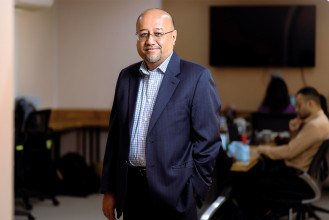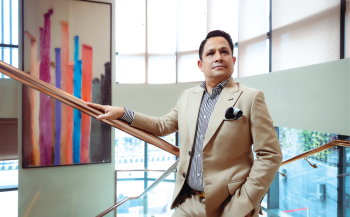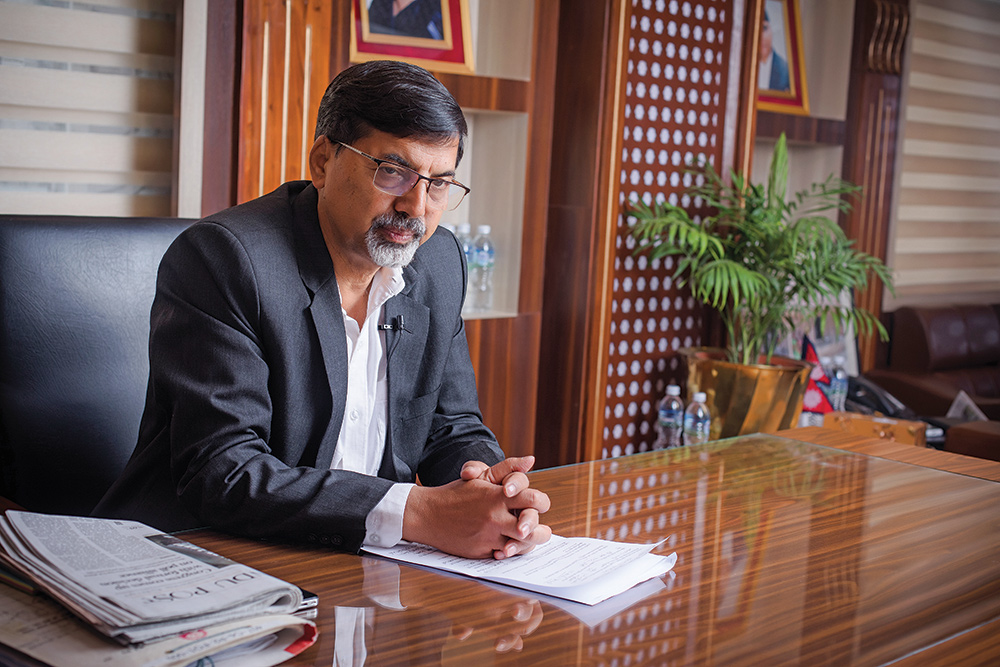
Janardan Sharma, Minister of Finance
In the economic aftermath of the Covid 19 pandemic, just as the economy was beginning to normalise and gather pace, business confidence has plummeted once again as banks and financial institutions fight the liquidity crunch and businesses struggle with lack of funds. Recent macroeconomic indicators published by Nepal Rastra Bank do not look encouraging. Consumer price inflation has increased to 7.14% and Balance of Payments stands at a deficit of Rs 258.64 billion. In the midst of all looming uncertainties, people are speculating if Nepal’s economy is heading in the same direction as the Sri Lankan crisis. As the government prepares the fiscal budget, Business 360 caught up with Finance Minister Janardan Sharma to gain insight into his perspective on the financial challenges the country is facing and the initiatives he plans to take to meet and overcome this volatility. Sharma is a seasoned politician and has previously served as Minister of Home Affairs, Minister of Energy, and Minister of Peace and Reconstruction at different points of his career.
Excerpts: The country is facing problems with external sector stability like Balance of Payments and current account deficit. If the foreign exchange reserves keep depleting, does it not signal that we are heading towards an economic crisis like in Sri Lanka?
The first thing is to be clear about the reasons why we are in the current situation. Why is BoP at a deficit? The first thing is during the Covid pandemic nearly all economic activities were at a standstill and people were not able to do anything. As we gradually started coming out of the Covid situation, the economy that had been in a downturn started opening up and people also started becoming more active in their businesses. Businesses which had been hit by the pandemic started thinking of how they could restart and increase profits that had been totally hit by the coronavirus. Some even started opening new businesses. There was excitement that seeped into the economic and financial sector. People started taking loans for their businesses. Now what we have to understand is that we are basically an import-based economy with mostly the trading businesses thriving. So the trend of taking bank loans and getting involved in trading started gaining momentum. 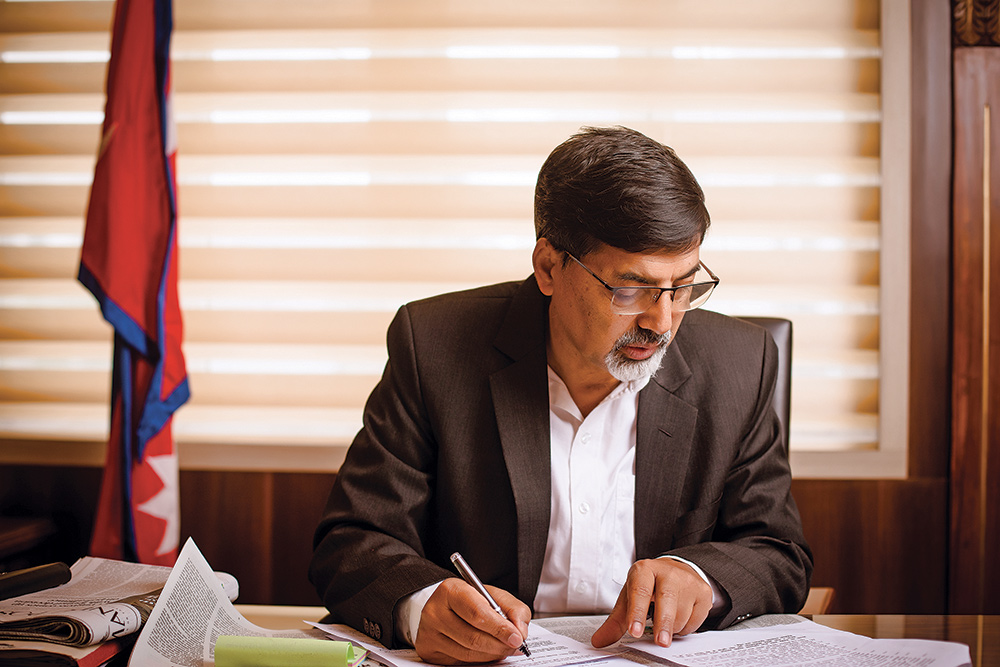 Here, it is also necessary to calculate our imports. As per records, a little over 50% of our investment in imports was for raw materials and heavy equipment and the remaining for consumption goods. Now people might say that imports were taking place earlier too. However, what we have to bear in mind is the cost of the imports previously and as of now. Due to change in the international value chain, Russia-Ukraine war, the price we now pay for imports has increased. At times I feel there were preparations being made for the war because the cost of commodities like iron for instance had been rising even before the war broke out. Even the price of plastic has jumped up.
Here, it is also necessary to calculate our imports. As per records, a little over 50% of our investment in imports was for raw materials and heavy equipment and the remaining for consumption goods. Now people might say that imports were taking place earlier too. However, what we have to bear in mind is the cost of the imports previously and as of now. Due to change in the international value chain, Russia-Ukraine war, the price we now pay for imports has increased. At times I feel there were preparations being made for the war because the cost of commodities like iron for instance had been rising even before the war broke out. Even the price of plastic has jumped up.
After the war started, the price of fuel rose significantly and when there is increment in the price of fuel it is bound to affect all sectors as transportation charges automatically rise. For instance, a container that was available at Rs 10,000 has now gone upto Rs 30,000. Due to this price hike and also because of the rise in the exchange rate vis-à-vis the US dollar, our imports have started getting costlier. We have been hit from all sides and since we are a small, import-based economy it has hurt our economy a lot and we have been witnessing a deficit in BoP. We are facing challenges but it is not that we cannot manage it. Some people have been saying our economy is heading towards the direction of Sri Lanka but I beg to differ. We still have foreign exchange reserves worth Rs 1,171 billion which is sufficient to cover imports of merchandise and services for 6.7 months. What happened in Sri Lanka is remittance went down dramatically at once whereas ours dropped by just around 4%. There has also not been any significant change in our businesses and industries.
Even the agriculture sector, which had been affected by the floods, has been contributing to the economy. The main problem right now for us is the tourism sector as the flow of foreign tourists is very low but I am confident this will rise in the near future. We are working on ways to mitigate the economic problems we are currently facing and this talk of our country soon becoming like Sri Lanka is only an outcome of negative mentality. When we talk about tourism what we have to keep in mind is that the number of visitors coming was comparatively low and that can be increased. Investment in the sector is also rising and new star hotels are being constructed. To help the tourism industry, the government is providing various facilities. Once tourists start coming I am confident the sector will witness a substantial boom. Regarding remittance, what I would like to mention is that the number of migrants going abroad for employment did rise but the remittance coming in actually dropped. There is also talk that many Nepalis have houses in places like Dubai and some business people are looking to invest huge sums abroad. We are also facing problems with cryptocurrencies and hyper funds. The other thing is that many business people have been saying that the customs system in the country has been causing practical problems and I am at the moment conducting a study on how we can make the process easier. People are mentioning that due to that hundi has been rising.
However, the major problem currently I would say is the misuse of technology like cryptos and due to these technological advancements, new forms of hundi have emerged. We are trying to resolve such issues so that we can increase our foreign exchange reserves. There will always be ups and downs in the economy of any country. No economy will be constant all the time. Initially, I had set a target of 7% economic growth rate, so the question is when I did so was it possible to achieve that? At that time the effects of the Covid pandemic were waning and the economy was just about starting to boom. During the pandemic our growth was a bit in the negative territory; it was 4% compared to the previous year so it was but natural that we could achieve 7% this year. We had set that target after holding discussions with economists and the National Planning Commission. How were we to know that there would be a war and our economy would be affected. We are thus facing challenges in meeting our growth target. To compound the problems even the price of electricity has increased. I was informed by the managing director of Nepal Electricity Authority that electricity price has risen to Rs 38 per unit. We will have to import power for another 40 days only but it is hurting our industries at the moment. Yes, the BoP is at a deficit of Rs 247.03 billion but we also have to look at the good side. Like I mentioned earlier, raw materials and heavy equipment have also been imported which will have a positive impact on the economy later. 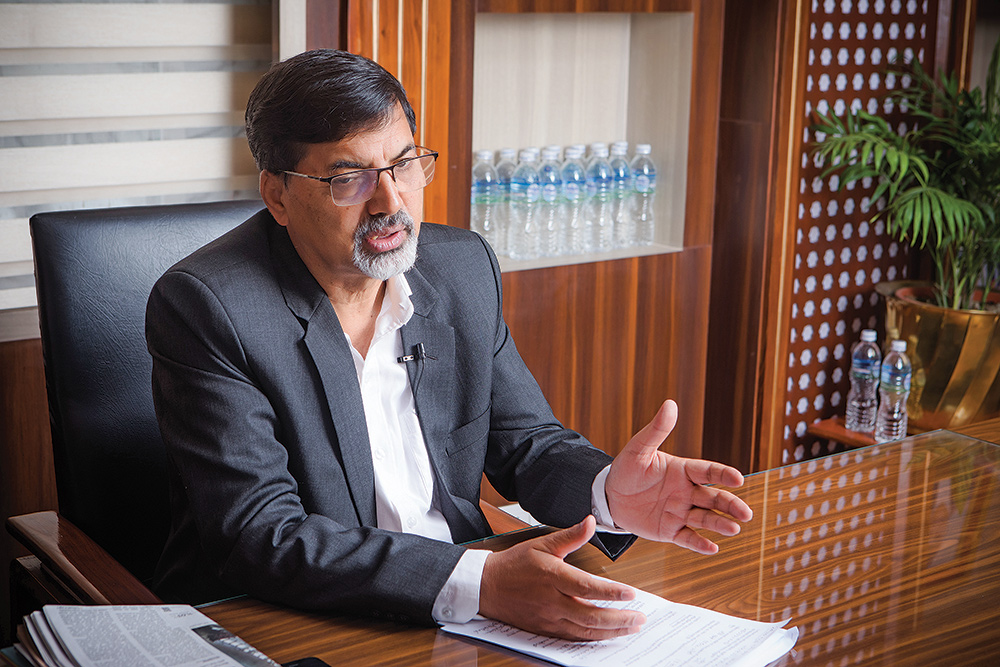 There are many factors that have an impact on the economy. For instance, a few days back I was having discussions with stakeholders of the banking industry and my only question was there has been a substantial rise – nearly 42% – in the amount of loans disbursed but we haven't been able to see its output. Why hasn't production increased? So I think there has to be a proper study on the facilities that the government has provided, on why loan facilities being provided are not giving the desired results. If we do plan properly and work on all the aspects I have mentioned we will not be in a position that Sri Lanka is at present. We will focus on increasing production and frame a policy on how we can substitute imports. Another factor which many people have not given thought to is that our recurrent expenditure is also very high and we are conducting a study on how we can minimise it. I feel there are some government structures which are not required. There are areas like even in our security agencies, and federal, provincial and local structures where we can conduct a study and see how we can decrease recurrent expenditure. We have to look at all these issues collectively. Yes, we have been hit and some people are worried and that is natural. I would, in fact, like to thank people who are worried because it shows their concern for the country.
There are many factors that have an impact on the economy. For instance, a few days back I was having discussions with stakeholders of the banking industry and my only question was there has been a substantial rise – nearly 42% – in the amount of loans disbursed but we haven't been able to see its output. Why hasn't production increased? So I think there has to be a proper study on the facilities that the government has provided, on why loan facilities being provided are not giving the desired results. If we do plan properly and work on all the aspects I have mentioned we will not be in a position that Sri Lanka is at present. We will focus on increasing production and frame a policy on how we can substitute imports. Another factor which many people have not given thought to is that our recurrent expenditure is also very high and we are conducting a study on how we can minimise it. I feel there are some government structures which are not required. There are areas like even in our security agencies, and federal, provincial and local structures where we can conduct a study and see how we can decrease recurrent expenditure. We have to look at all these issues collectively. Yes, we have been hit and some people are worried and that is natural. I would, in fact, like to thank people who are worried because it shows their concern for the country.
However, Nepal is in a position to manage its economy. We have not taken huge loans like in Sri Lanka. Even regarding the loans that the country obtains from various development partners, I am trying to change the way we do it. At the moment the only way we can pay back the loans is through our revenue. But I believe the loans we take must not be a burden on the people. So I am trying to develop a mechanism whereby we take loans on project basis and the project should pay back the credit through its revenue. This means any project we select should be revenue generating and loans must be taken for those specific projects only. Hence, if we build an airport through a loan the airport itself should pay back the amount. At present, the global economy has been affected and there is inflation everywhere, not just in Nepal. The only thing we have to be careful about is that it does not cross the limit. So, if we are aware of all these issues and utilise our resources in an optimum manner then our economy will be on track. We will be in the right direction.
The liquidity crunch faced by the banking industry has prolonged for some time now and the government's capital expenditure which could address this problem has been very low. Your views.
We just had a meeting of the National Development Problem Solving Committee and I put forth this question – what is the reason behind why we are not able to increase capital expenditure. Oftentimes, we only state there has been no capital expenditure but we do not try to find the reason behind it. Is it due to some government policies? Is it because some authorities within the government structure are not working as expected? So, firstly we need to identify where the problem exists. This has been going on for many years now; we only say capital expenditure is low but are not trying to find out why. Right now, I would say capital expenditure is more compared to the previous year. Because while preparing the Replacement Bill when we asked the staff to increase capital expenditure they did not do so citing anything could happen in the future. We spent nearly three months preparing the Replacement Bill, which means there was a delay of three months in starting work and even then our capital expenditure is just 2% less than that of the previous year. We hope to be equal to last year's expenditure by this month. We have spent more than last year actually when looking at the money spent. The recurrent expenditure is also more than last year.
In total, expenses are more than last year; just 2% less in capital expenses compared to last fiscal. What I have also been stressing is that we will not be able to develop as expected if we continue doing things the way we have been in the previous years. Yes, the quantity of capital expenditure might increase but not the quality. So how can we increase capital expenditure in a qualitative manner? That is something we have to seek. We designate certain projects as national pride projects but for decades nothing substantial happens. There is always a drawback in budget arrangement. From the moment we start the project we have to consider it as national pride but what we do is put the budget in reserve. What is the reason behind the slow speed of development of such projects? It is all about leadership in management. What I am contemplating now is setting up separate authorities to manage specific projects, so that the people involved in such authorities are totally focused on only those projects.
I firmly believe that people in such authorities should not be transferred, there should be no interference. There should also be no shortage of budget. Right now the national pride projects are like any other normal project under the ministry; even though we accord it a status of national pride, in practice nothing of that sort has been happening. These authorities should be led by technical experts but also include elected representatives, media personnel and also local people. There should be financial experts too who can manage the budget properly. So we have to form such a body, set a target, define the schedule and only then start working on a project. At present, we have too many hassles of getting permission from one ministry and then another permission from another authority. 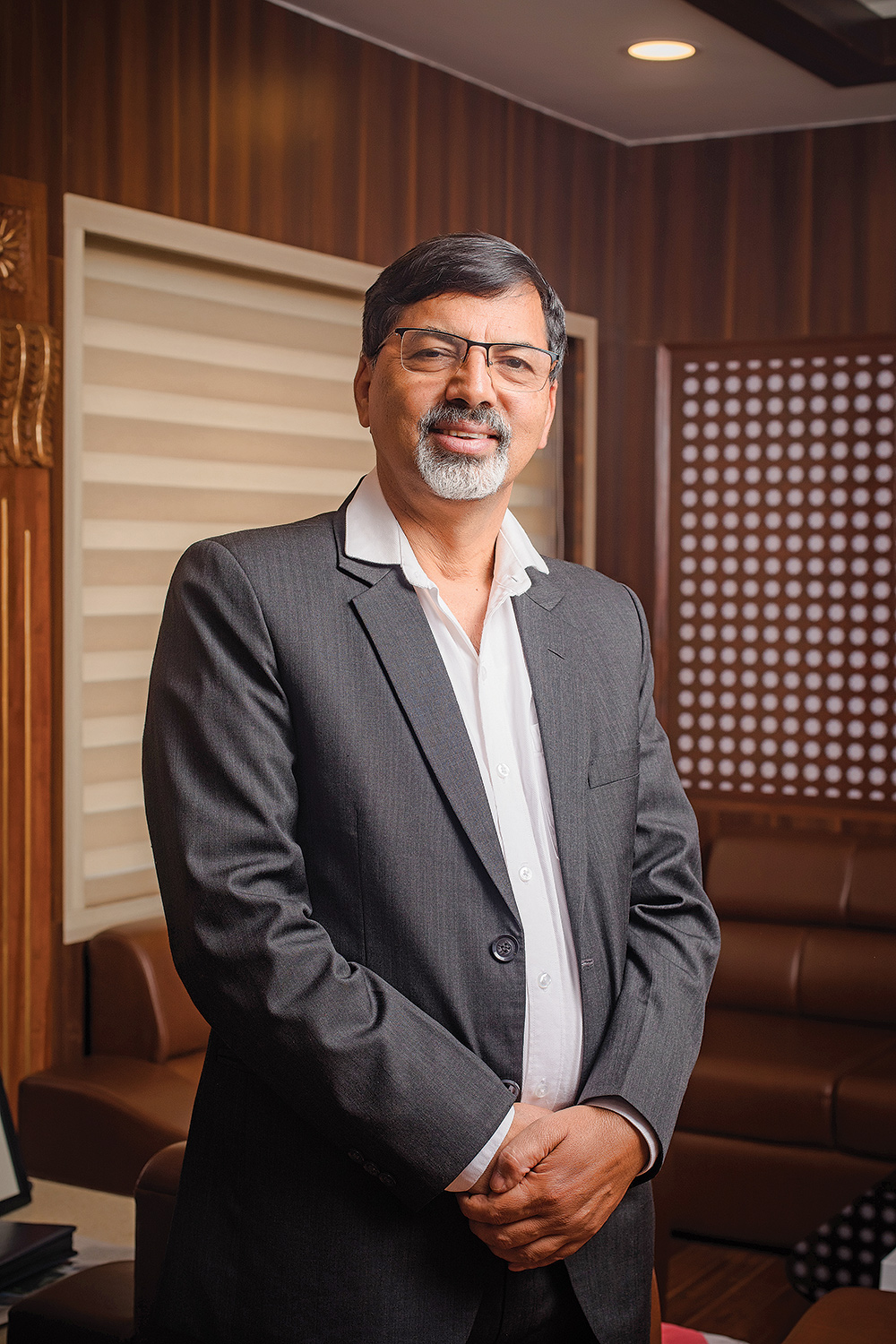 The other reason why capital expenditure is not as expected is that the works are basically done by the government administration, the civil servants. What I have noticed in the administration is people have a mentality that it is okay even if they do not work. Some files get stuck for months as they are not signed by the concerned authorities. Even if it is an urgent file, it takes three months to be verified. If the government is not able to punish those who do not work, then I don't think capital expenditure will increase the way we want it to. Those who do not finish their work on time need to be punished. However, there are many bureaucrats who put in a lot of effort to accomplish their tasks and they need to be rewarded but the government never does so. So to change the mentality of the bureaucracy, the government needs to adopt a reward and punishment mechanism. If someone has performed exceptionally well why not give that person a promotion? It could motivate others. We need to make them aware that whatever they are doing is for the nation. This schooling is needed for the bureaucracy. Unless the mentality of the bureaucracy changes for the good, the common people will not be able to avail services as expected. I would also like to add that any national project is not a personal enterprise of any politician or bureaucrat. The country's funds should be used by focusing on development. We need to make sure that the trend of looking at projects as personal property by some political leaders and bureaucrats must end. These are some challenges. From the studies I have conducted and through my experiences, what I have seen is that capital expenditure will not improve if we continue in the same manner; a qualitative change is required. We have to develop a system where the projects are developed through a self-governing mechanism and we need to hire capable people. One aspect which we need to look into is that the public have not been made a part of the development process. If the people are associated with the projects, they will provide the necessary momentum. If the media are also a part, then they can raise the issues. And if elected representatives are made part of the project, they will also be accountable. These are lacking. Yes, we need technical people for the projects but at the same time, they should be assisted by other people too. And once development projects are operated in a proper manner it is but natural that capital expenditure will also be made accordingly.
The other reason why capital expenditure is not as expected is that the works are basically done by the government administration, the civil servants. What I have noticed in the administration is people have a mentality that it is okay even if they do not work. Some files get stuck for months as they are not signed by the concerned authorities. Even if it is an urgent file, it takes three months to be verified. If the government is not able to punish those who do not work, then I don't think capital expenditure will increase the way we want it to. Those who do not finish their work on time need to be punished. However, there are many bureaucrats who put in a lot of effort to accomplish their tasks and they need to be rewarded but the government never does so. So to change the mentality of the bureaucracy, the government needs to adopt a reward and punishment mechanism. If someone has performed exceptionally well why not give that person a promotion? It could motivate others. We need to make them aware that whatever they are doing is for the nation. This schooling is needed for the bureaucracy. Unless the mentality of the bureaucracy changes for the good, the common people will not be able to avail services as expected. I would also like to add that any national project is not a personal enterprise of any politician or bureaucrat. The country's funds should be used by focusing on development. We need to make sure that the trend of looking at projects as personal property by some political leaders and bureaucrats must end. These are some challenges. From the studies I have conducted and through my experiences, what I have seen is that capital expenditure will not improve if we continue in the same manner; a qualitative change is required. We have to develop a system where the projects are developed through a self-governing mechanism and we need to hire capable people. One aspect which we need to look into is that the public have not been made a part of the development process. If the people are associated with the projects, they will provide the necessary momentum. If the media are also a part, then they can raise the issues. And if elected representatives are made part of the project, they will also be accountable. These are lacking. Yes, we need technical people for the projects but at the same time, they should be assisted by other people too. And once development projects are operated in a proper manner it is but natural that capital expenditure will also be made accordingly.
How does the government plan to address the hike in prices of construction materials like iron rods, cement and fuel that is destabilising the construction industry?
I agree that prices of certain construction materials have risen. For instance, the price of iron rods has increased. However, I don't feel there is any problem regarding cement; that is just an excuse because we are self-reliant in cement. Since the price of petroleum products has risen, it is natural that price of other commodities will see an increment. That has happened due to a particular situation and how long this will continue is not certain. But what we have to keep in mind is the iron rod that you are buying today had been imported in the previous months. Yes, international prices have gone up but not all that were imported in the previous months have been used up. It is important to monitor the artificial hike in prices of some commodities. The second factor is that when you compete and say you will finish a certain work within a certain timeframe and at a certain cost, then you have to. This is mentioned in the tender. Even if there could be any change in the cost, that percentage clause is also included in the tender. Even for other related problems, there are clauses. All such issues are included and managed in the tender. So, this construction holiday type of demand will not be acceptable to the government. During any emergency, we have to unite, collaborate and try to resolve problems.
During the course of their work, if they do face genuine problems then the government has to look into it and resolve it. However, if you have already bought the rods and aggregates a few months back which are still in stock and then you say you cannot work due to the price hike, then we can term that as anarchy. Development will not take place in that manner and we will not accept such arguments. When businesses are really in a dire situation, then I am open about the government providing the required assistance. But the way they are bargaining is not acceptable and we have held discussions regarding that.
To decrease consumption and discourage imports banks have had to increase their lending rates. However, to meet the economic growth rate target, the productive sector needs loans at lower interest. How can Nepal Rastra Bank address this?
We are receiving suggestions that the credit interest rate on trade and production purpose should be different and discussions are being held on that. I have been talking to Nepal Rastra Bank and other concerned stakeholders. I also feel the interest rate for the productive sector should not be a lot higher than the base rate. The reason is because in our country the problem is the cost of production is very high. We need to minimise this cost and we can look at this issue through the interest rate being charged on credit. Meanwhile, there are suggestions coming in that the exchange rate too should be flexible. I can't say for certain about what we will be doing regarding that at this moment but we are receiving suggestions. For example, there has been a suggestion to make the exchange rate different for raw materials that are imported for production and for goods which are imported for consumption. So we are looking at how it will affect the economy. The other important aspect is that we need proper collaboration with the provincial governments. Every provincial government should identify a productive sector in which it can be self-reliant; just pick one or two. For instance, herbs could be given priority in Humla and locals there could sell the herbs and with that income buy rice. Such objectives should be framed and there should be coordination with the provincial and local governments. Talking about being self-reliant only at the central level will not get us anywhere. It has to start from the local level. What I am trying to convey is that we have to give due priority to production. The approximately 60% of our population that is involved in agriculture should break away from traditional means of farming and start utilising the latest knowledge and technology and convert that into a modern industry. We have to connect agriculture and industry and if we can do that then we can usher in a new revolution in production. Last year, just the import of food items was worth Rs 325 billion. We might not be able to substitute imports in the immediate future but if we go about it in the correct way in the long term, we will be able to be self-reliant in many areas. Research has shown that if we are able to provide seeds and fertilisers to the farmers in a timely manner, we can raise the production of paddy by 5% to 7% and decrease the import of rice. Now the crux lies in implementing it. One farmer who has started apple farming in a very big scale in Jumla had recently come to meet me and his problem was there was no road connectivity. So, I have asked the infrastructure ministry to build a road there and we will be paying the money. The reason is because we import apples from various countries when we could actually be self-reliant in it. I am just trying to create an enabling environment. The provincial governments have to start taking the initiative for such things. The central government has to provide technical and financial help, the provincial government has to provide planning support and the local government has to mobilise farmers in production; if we can do that it will be fantastic. We also need to focus on the new techniques being developed. For example, it is not necessary to grow sugarcane for sugar. We can get it from sugar beet which is ready in six months. Look at Birgunj Sugar Mill and other factories which are staying idle and we are having to import sugar. We also have the capability of growing fruits and vegetables for exports. I would like to mention blueberry as an example. It grows tremendously well at altitudes of above 1,600 feet and we have plenty of land above that height. And it has a huge market; we don't even have to go far, just India and China will suffice. There is a demand for Red Savina Pepper (akbare khursani) in the mid-East. So we need to identify products that can be exported or which can be linked to our industries. Just importing the crude forms like what we have been doing with soybean and palm oil and refining and exporting these will not help the country in the long run. We have to stress on goods that can be grown locally if we want sustained growth and development. Even with electricity, I am more inclined towards increasing domestic consumption rather than trading it. If people in Kathmandu alone use electricity for cooking purposes, we can substitute liquefied petroleum gas. Everything will not happen overnight but once we are on the right path we will definitely reach our destination. We will be saving billions in imports. This is how we can substitute imports and bring our BoP on track. We will be able to save our foreign exchange reserves.
You have repeatedly stated that hundi is on the rise and also that people are hoarding money under their pillows. How do want to address the issues of the informal economy?
I must accept there are a few shortcomings in our policies. For instance, I met a person who is running a Buddhist monastery which has about 2,000 students. He mentioned that he has around Rs 80 million at home and the reason behind this is that he needs a huge amount of money on a daily basis just to buy food for the students and there are certain limitations with banking withdrawals. So what happens is instead of going through such hassles, some people prefer to keep money at home. We have to correct such policies. The problem is that we tend to listen to foreign experts and adopt polices accordingly. We should be drafting policies based on our needs, social conditions and economic situation. Let's forget about the commission games and corruption which are always hidden. Hundi is not related to international transactions only. It is happening domestically too. International hundi transactions have increased due to crypto, people buying homes abroad, and under-invoicing of customs bills. People are selling property here and taking money abroad. To stop all these malpractices, the Finance Ministry cannot do it alone. For this the entire state mechanism has to collaborate. I have informed the Prime Minister about this. Unless, we mobilise all our mechanisms we will not be able to control it. The other way is to make certain rules and regulations easier. The reason why there is a black economy is because people can play around with black money. If we can have a policy where people will not be able to play around with black money, then there will be no black economy.
What will be your priority while formulating the budget for the next fiscal year?
The main priority will be import substitution. That is the major problem at this point of time and we will be focusing on that. We will be focusing on how we can entice people to start farming on unutilised land. We will be looking for ways to reduce poverty and increase employment. These are the main things but will only these suffice? I would say no. Along with that we have to simultaneously take forward big projects which will help in capital formation and improve our gross domestic product. Such projects will help the overall development of the nation. At present, we have to develop our economy in such a way that people are able to exercise their fundamental rights. There are many rights enshrined in the constitution but people have not been able to exercise them. Health, education, food and housing for instance are all enshrined as fundamental rights in the constitution but people need to be able to have these. To achieve that, we have to improve our economy. How quickly will people be able to exercise the fundamental rights that have been enshrined in the constitution and how can we utilise our resources and reap the benefits, how can we increase exports and substitute imports: we will be focusing on these things. 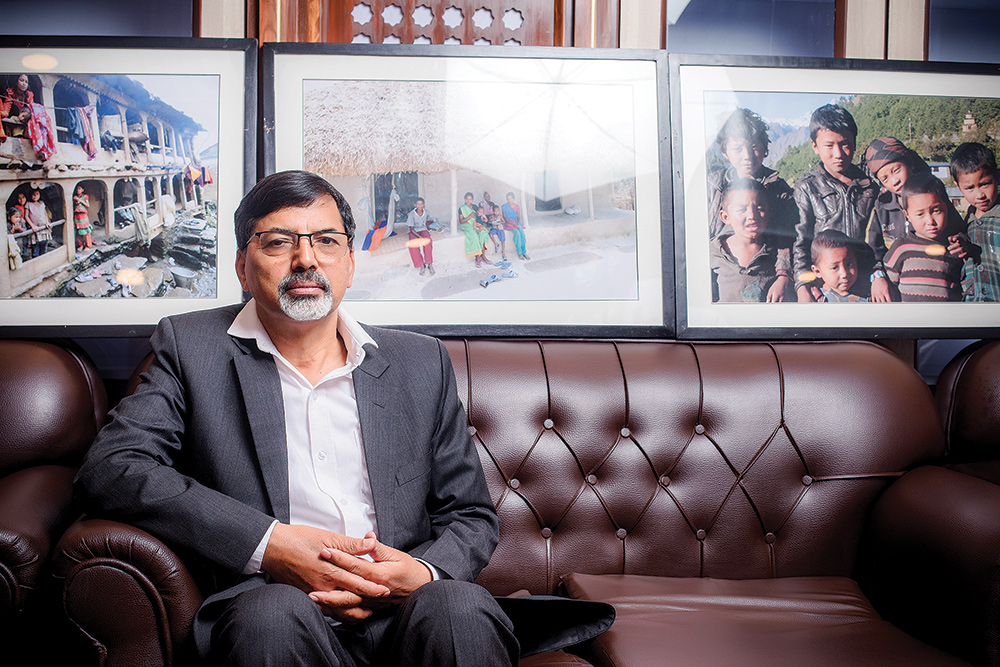
"If we do plan properly and work on all the aspects I have mentioned we will not be in a position that Sri Lanka is at present."
The trend is after a few months of the budget being announced, all the ministries rush to the Finance Ministry to amend their programmes and for fund transfers. However, due to the elections the code of conduct will not allow for this practice this time. How do you plan to allocate funds to the various ministries?
Like I said earlier, we have to form an autonomous authority for projects. The people there should not have to run around for fund transfers. The money that is required should be made available to them and they should be given the authority to utilise those funds. I don't believe that everything should be centralised at the Finance Ministry. The issue should not be about fund transfers. If we can prepare the project with a proper plan and the amount that is required is clearly estimated, then there will be no need for anybody running around for fund transfers. If there is an exception, then that is understandable and we have to facilitate that. While talking about election, it should not be an obstacle to the development process. Just because there is an election we cannot stop the development process and if funds are required then that must be provided. Due to the code of conduct for the elections we can't stop all the works related to national development. The economy is the heartbeat of the nation which is constantly beating; no one can stop it. Yet, more than fund transfers we should be focused on good preparation before we begin any project. The second aspect we always have to consider is under whose jurisdiction does the project fall. When drafting the Replacement Bill, I had queried about how many provincial roads there are. There are about 1,600 such roads and each have been allocated Rs 2.4 million each but there is no sign of those roads being built. Billions of rupees are being held there. So, I said that the provincial governments need to be very clear about how many roads they will be building and also the type of roads. They need to be certain about which roads are important and need to be immediately built and investment has to be made only there. And the money then has to be given to the provincial governments and they need to do all the work after that. If it is smaller roads dealing with the local governments then they should be given the responsibility. At present, there is an overlap of jurisdiction. What the local level needs to do, the centre is doing and what the centre should be doing, the local level is doing. Even with the provincial level it is the same. So one way to resolve the problem is to categorise things and work accordingly. Certain powers should be delegated to the lower levels of the government. What I have done for projects dealing with the provinces is that the provincial governments have been given the authority to transfer the funds and also make amendments when needed. Why should the provinces always have to run to the centre for everything? It should be their authority. Even ministries have been given the authority for a certain amount of funds. This system is to make sure that work is finished on time. There should not be any feeling that the other ministries cannot do things and only the Finance Ministry can do things. We are also developing a mechanism to monitor this so that everything goes as planned and there is no discrepancy.
While preparing the budget the Finance Ministry has established a think tank that actually reduces the role of the National Planning Commission. What was the need for this?
To be honest, some people are just trying to malign the concept of the think tank by stating it will reduce the role of the National Planning Commission. In practice, both the Finance Ministry and NPC are one entity. The planning commission is the Finance Ministry's advisor whereby it prepares the projects and based on its recommendations the ministry moves ahead. There is a reason why I have formed the team and how much it will be able to perform is a different chapter which we will be able to see in the future. The problem in Nepal is that we frame policies and plan projects without much research. It is high time that we frame research-based policies. Shouldn't there be research conducted in the Finance Ministry? I have told all the concerned members of the ministry that it is necessary to conduct research on all subjects. How do we resolve the various problems that the economy is facing? We have to think of ways to increase our production. The problems which we are facing are due to lack of research. If we had done enough study maybe we would have been aware of problems like cryptos too. I want to establish the culture of conducting research before we come out with any policies. Now to conduct research we need to hire experts. At the moment we have given a particular subject to the team to conduct research on. It is not a totally different entity. They will be focusing on only agriculture for the moment. Why haven't we been able to improve production in the agriculture sector? Even when there has been so much of investment in agriculture why haven't we been able to see results? Billions have been poured into the sector as grants. Where is the money? Did the farmers for whom it was disbursed receive the funds or was it channelled elsewhere? And even if the farmers did receive the money then why hasn't there been any positive result? How can we reduce poverty and unemployment through agriculture? So, I have asked the team to do research on these types of issues. I think this research will also be helpful to NPC. The NPC can do additional work based on this research. And we at the ministry also can make programmes based on the research. This team will conduct research on selected subjects and submit a report to us. However, some people are projecting it in a negative way. This is just a trial. I want this to be for the long run. I believe that there has to be a research department at the Finance Ministry. We are going through so much development in recent times and we have to conduct research to keep up with the changing times and trends.
READ ALSO:



-1767340083.jpg)
